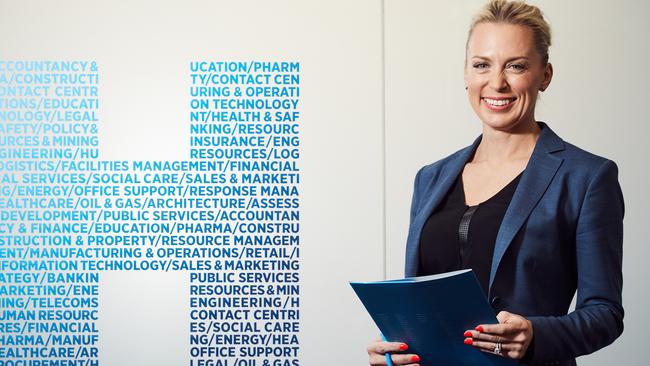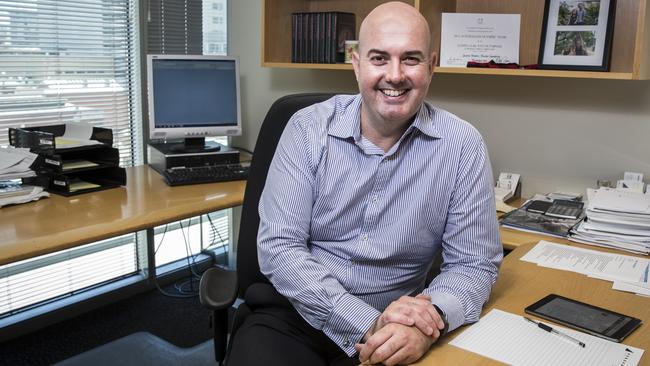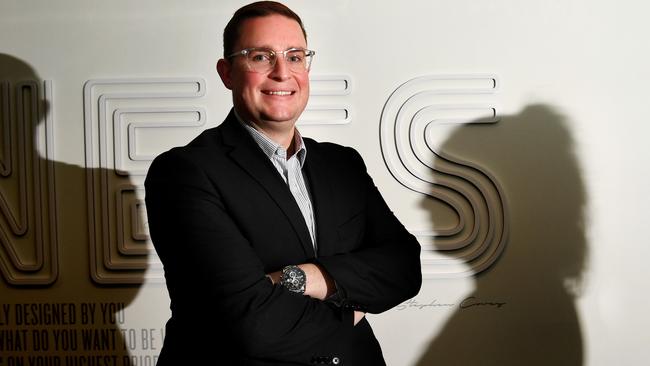Recruiters reveal what jobseekers should not do in job interviews
What is the worst thing a jobseeker can do in a job interview that can cost them the job? Recruiters reveal big mistakes are common problems.

- The Australian National Talent Registry launched for jobseekers
- How to use the Australian National Talent Registry to get a job
CAREERS’ panel of expert recruiters answers a reader’s question each week. Have a question? Email careers_qs@news.com.au
What is the worst thing a candidate has done in a job interview that has immediately lost them the role?
Lisa Morris
Director,
Hays
There are a lot of mistakes that can cost a candidate a job. Some that stand out are admitting to lying on their CV, being caught out falsifying qualifications and answering their phone (during a job interview) then having a lengthy conversation with the caller. These, however, are very rare occurrences. A more common everyday interview mistake occurs when candidates fail to do their research. Everyone is busy but interviewers can tell if you’ve failed to gather information about their organisation and are therefore unable to relate your experience to the specific duties of the job available and their company culture. There’s really no excuse for this, as an organisation’s website and social media accounts provide great insights that can help you prepare appropriately for an interview. Other common mistakes include not understanding how to answer behavioural interview questions, describing your reasons for applying in the context of what you’ll get out of the job rather than what you can offer the employer, and either turning up late for an in-person interview or dialling in a few minutes late to a video interview.

Justin Hinora
Executive consultant,
Hender Consulting
There are several examples that spring to mind. Candidates who attend interview without having conducted any research on the opportunity or employer at all; being late for interview and not making any attempt to phone/email ahead or even acknowledge or try to explain why they were late; answering a mobile phone call during interview and proceeding to have a new discussion with the caller which clearly was not urgent and could have waited; lacking any sense of self-awareness; or completely dumping on their current employer are all ways that a candidate has immediately jeopardised their chances at interview.

Andrew Sullivan
Managing director,
Sullivan Consulting
Panel interviews are a crucial stage in the recruitment process and too often I’ve seen candidates failing to prepare for them. One mistake is not researching the employer organisation and the role adequately or at all. By the panel interview stage, employers expect candidates to have a good understanding of their business and the contribution the candidate sees themselves making to the organisation. Similarly, I see candidates making assumptions about the employer, which can be equally as damaging to a candidate’s chances of success. These are both huge mistakes that are obvious to a potential employer and can immediately lose candidates the role.

Alexandra Rosser
Head of Organisational Psychology Consulting,
Stillwell Management Consultants
As recruitment decisions are always based on multiple considerations, it is rare that any single factor will cost someone the role. However, any discovery during an interview that the candidate lied in their application (covering letter/CV) would likely immediately disqualify them. Turning up late – or not at all – to the interview, failing to even attempt to answer one or more questions, badmouthing former or current employers or colleagues, being under the influence or otherwise demonstrating a lack of respect for the process, recruiter or panel will also all be unfavourably received.

MORE NEWS
The importance of being a cultural fit for your new employer
Making job applications stand out among the competition
How to succeed in video job interviews
News Corp has partnered with HR technology company Shortlyster to develop the Australian National Talent Registry, an initiative to help get Australians back to work, as COVID-19 has left hundreds of thousands of people either jobless or with reduced working hours.
The registry aims to connect jobseekers, whose employment does not have to have been directly affected by the coronavirus pandemic to participate, with employers on cultural-fit and psychological level, not just qualifications and experience.
It is free for jobseekers to sign up. To sign up, visit adelaidenow.com.au/careers
Originally published as Recruiters reveal what jobseekers should not do in job interviews


